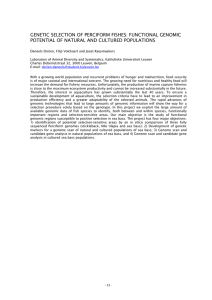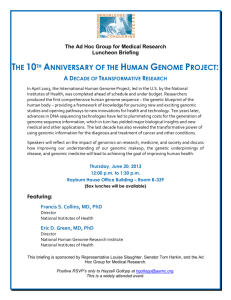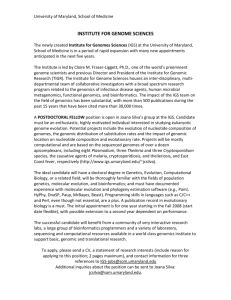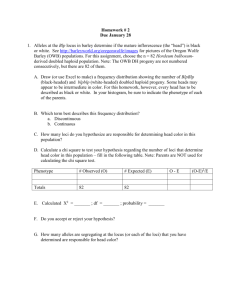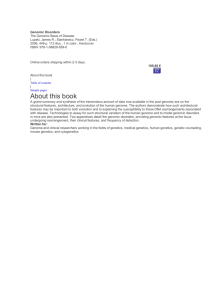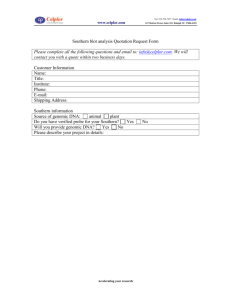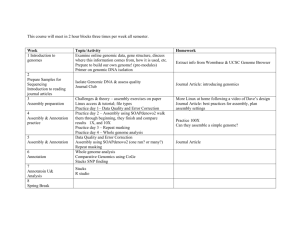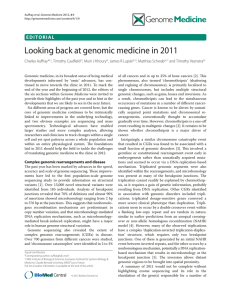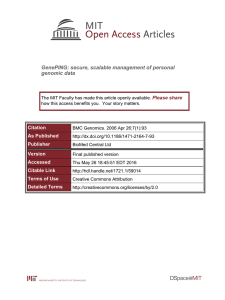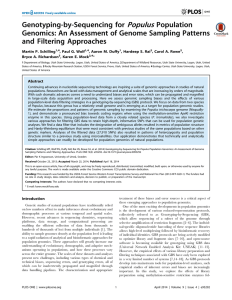Souche Erika , Bart Hellemans , Sven Klages
advertisement
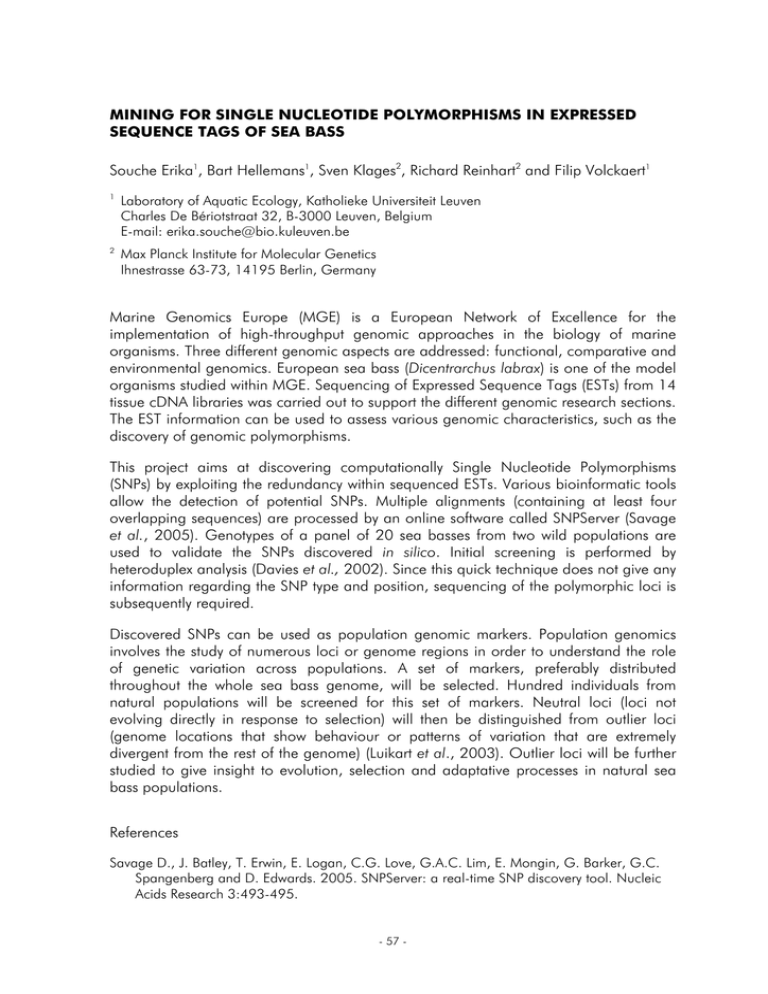
MINING FOR SINGLE NUCLEOTIDE POLYMORPHISMS IN EXPRESSED SEQUENCE TAGS OF SEA BASS Souche Erika1, Bart Hellemans1, Sven Klages2, Richard Reinhart2 and Filip Volckaert1 1 Laboratory of Aquatic Ecology, Katholieke Universiteit Leuven Charles De Bériotstraat 32, B-3000 Leuven, Belgium E-mail: erika.souche@bio.kuleuven.be 2 Max Planck Institute for Molecular Genetics Ihnestrasse 63-73, 14195 Berlin, Germany Marine Genomics Europe (MGE) is a European Network of Excellence for the implementation of high-throughput genomic approaches in the biology of marine organisms. Three different genomic aspects are addressed: functional, comparative and environmental genomics. European sea bass (Dicentrarchus labrax) is one of the model organisms studied within MGE. Sequencing of Expressed Sequence Tags (ESTs) from 14 tissue cDNA libraries was carried out to support the different genomic research sections. The EST information can be used to assess various genomic characteristics, such as the discovery of genomic polymorphisms. This project aims at discovering computationally Single Nucleotide Polymorphisms (SNPs) by exploiting the redundancy within sequenced ESTs. Various bioinformatic tools allow the detection of potential SNPs. Multiple alignments (containing at least four overlapping sequences) are processed by an online software called SNPServer (Savage et al., 2005). Genotypes of a panel of 20 sea basses from two wild populations are used to validate the SNPs discovered in silico. Initial screening is performed by heteroduplex analysis (Davies et al., 2002). Since this quick technique does not give any information regarding the SNP type and position, sequencing of the polymorphic loci is subsequently required. Discovered SNPs can be used as population genomic markers. Population genomics involves the study of numerous loci or genome regions in order to understand the role of genetic variation across populations. A set of markers, preferably distributed throughout the whole sea bass genome, will be selected. Hundred individuals from natural populations will be screened for this set of markers. Neutral loci (loci not evolving directly in response to selection) will then be distinguished from outlier loci (genome locations that show behaviour or patterns of variation that are extremely divergent from the rest of the genome) (Luikart et al., 2003). Outlier loci will be further studied to give insight to evolution, selection and adaptative processes in natural sea bass populations. References Savage D., J. Batley, T. Erwin, E. Logan, C.G. Love, G.A.C. Lim, E. Mongin, G. Barker, G.C. Spangenberg and D. Edwards. 2005. SNPServer: a real-time SNP discovery tool. Nucleic Acids Research 3:493-495. - 57 - Davies H., G.R. Bignell, C. Cox, P. Stephens, S. Edkins, S. Clegg, J. Teague, H. Woffendin, M.J. Garnett, W. Bottomley, N. Davis, E. Dicks, R. Ewing, Y. Floyd, K. Gray, S. Hall, R. Hawes, J. Hughes, V. Kosmidou, A. Menzies, C. Mould, A. Parker, C. Stevens, S. Watt, S. Hooper, R. Wilson, H. Jayatilake, B.A. Gusterson, C. Cooper, J. Shipley, D. Hargrave, K. Pritchard-Jones, N. Maitland, G. Chenevix-Trench, G.J. Riggins, D.D. Bigner, G. Palmieri, A. Cossu, A. Flanagan, A. Nicholson, J.W.C. Ho, S.Y. Leung, S.T. Yuen, B.L. Weber, H.F. Seigler, T.L. Darrow, H. Paterson, R. Marais, C.J. Marshall, R. Wooster, M.R. Stratton and P.A. Futreal. 2002. Mutations of the BRAF gene in human cancer. Nature 417:949-954. Luikart G., P.R. England, D. Tallmon, S. Jordan and P. Taberlet. 2003. The power and promise of population genomics: from genotyping to genome typing. Nature Reviews 4:981-994. - 58 -
